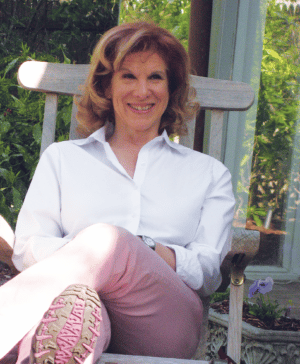Karen Petrou
Managing Partner, Federal Financial Analytics
Industry experience: 44 years
A few years after the Great Recession, Karen Petrou began analyzing whether the Federal Reserve’s monetary and regulatory policies were having unintended consequences on the financial system and the economy. At the same time, she was exploring the growing economic inequality between wealthy and low- and moderate-income households. A co-founder and managing partner of the Washington consulting firm Federal Financial Analytics, Petrou presented to global central bankers in a 2016 speech her findings about the Fed’s unintended role in inequality. While receptive to her findings, none of the bankers acted, she said, leading her to write a book in her spare time.
Petrou published “Engine of Inequality: The Fed and the Future of Wealth in America” this month. Along with laying out how the Fed’s monetary and regulatory policies have contributed to economic inequality, particularly during the pandemic, Petrou offers several solutions, including focusing on the larger economy rather than financial markets, better understanding how monetary policy affects the economy, normalizing rates, and making banks and nonbanks subject to the same rules for the same activities.
Q: You write in the book that you went from being an analyst to being an advocate. How did you decide to take this approach?
A: I started writing the book for a university press with a much more academic focus. The first version of the book was much more technical and less conversational than this one. Through 2016, 2017, 2018, it just seemed to me that everything was getting so much worse – the economy was worse; growth was still very slow; income and wealth inequality was getting worse and worse; Donald Trump’s rhetoric was more and more populist; and progressives were getting more and more angry about that. The country was getting much more divided.
I gave another speech in 2018 to the Federal Reserve Bank of New York and said, “Look, all of us here, we have a responsibility to fix these unintended consequences. I know you don’t mean it, but look.” They all said the same thing the central bankers said in 2016, which was: “That’s very interesting, but I don’t think it’s in my job description,” or “It’s not our fault, it’s fiscal policy” or “We’ll be thinking hard about that but don’t call us.” And that’s when I decided the book really had to be written to mobilize opinion, and I became more of an advocate.
Q: What are some reasons for the unintended consequences?
A: I think we got here first and foremost through monetary policy because economic inequality is of course about who has the money, and money of course is the fuel, the engine of inequality. Rules intersect with monetary policy. For example, if you have, as we do, ultra–, ultra–low interest rates, and banks have high capital requirements so that making loans costs them money, then banks are not going to make loans. They are not going to make the kinds of loans to lower– and moderate–income households that generate growth because they can’t make money at it.
That leads to the burst of nonbank lending, whether it’s in mortgages, payday lending, short-term small–dollar lending or other nonbank channels of financing. Most interesting I think is Google, Amazon, Facebook: Big Tech platform companies getting into financial services because they can cherry–pick the banking model and pick the loans they want to make, which generally are the loans that advance their business models. That has really changed the structure of financial services with a lot of inequality debris along the way.
Q: You write about how commercial real estate lending as well as commercial and industrial lending have replaced lending to low– and moderate–income families. Why did that shift?
A: It used to be small banks or community banks made loans to lots of people. They used to make mortgages – not just sell them to Fannie Mae and Freddie Mac – and keep them on their books. They were critical lenders to Main Street, start–up small businesses, established small businesses and local larger companies that weren’t big enough for the national markets. But the community banks are even more punished by ultra–low interest rates than the biggest banks because they don’t have access to the capital markets. They really rely on deposit funding. They need a higher net interest margin not just because of the funding costs but because the new rules cost them disproportionately more.
So, they can’t make money at the type of long-term equitable loans that foster equitable economic growth. They go for the loans – and most of them are often commercial real estate – that are in their area where they can compete effectively, and the risk is such that they can get the rates up and make a bit of a spread. That obviously exposes them to a lot of risk, but that’s why they do it. If they’re going to be banks and take deposits, the money has to go somewhere.
Q: How will the solutions you offer benefit community banks?
A: I think this is true for banks big and small. The business model is very simple: Banking is about financial intermediation, which is taking deposits and making loans. Banks do other things, but that’s banking at its essence. You cannot make money doing that given the confluence of current Federal Reserve monetary and regulatory policy. That business model is going out of business. Community banks will feel that first and worst because they aren’t giant wealth–management machines or trading houses or all of the other things that JPMorgan and Goldman Sachs can do to make the business model profitable.
Small, medium and even large regional banks are first and foremost financial intermediaries, and this business is not a profitable or successful one without higher rates and rules that support equitable growth. And that’s why you see fewer and fewer community banks and more mergers and all of the commercial real estate lending, because the business model is under such acute pressure.
Q: What pushback do you expect from nonbank lenders?
A: I think the nonbank sector will like all of the book – except the part where it says banks and nonbanks should be regulated the same when they do the same thing, because those rules are very expensive.
Petrou’s Five Favorite Vacation Destinations
- Sea Ranch, California
- Prout’s Neck, Maine
- Rome at New Year’s
- Sonora Island, British Columbia
- Kiawah Island, South Carolina




 |
| 


